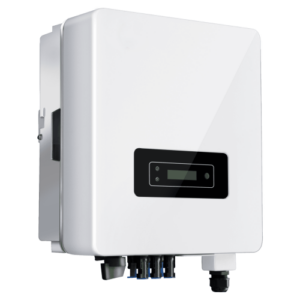目录
ToggleIntroduction
With frequent power outages and the growing need for backup power solutions, home inverters have become a staple in many households. Inverters convert stored DC power from batteries into AC power, making it usable for running household appliances during a power failure. However, choosing the right inverter can be challenging due to the various types available. This article explores the types of inverter for home use, highlighting their unique features and applications to help you make an informed decision.
What Are Home Inverters and Why Are They Essential?
A home inverter is an essential device that ensures uninterrupted power supply during outages. It works in conjunction with a battery, storing energy and converting it when needed. Home inverters are particularly useful in regions where power cuts are frequent or in homes that rely on solar energy systems.
Different types of inverters cater to various household needs, from basic appliances to sophisticated systems like HVACs and home automation setups. Understanding the different types of inverter for home use can help homeowners choose a solution tailored to their energy requirements.

Types of Inverter for Home Use
- Pure Sine Wave Inverters
- Overview: Pure sine wave inverters produce electricity similar to the power supplied by the grid.
- Applications: These inverters are ideal for sensitive and high-end appliances like refrigerators, air conditioners, and medical equipment.
- Advantages: They offer a clean, stable power output, ensuring the safety and efficiency of devices.
- Modified Sine Wave Inverters
- Overview: These inverters generate a stepped approximation of a sine wave, making them more affordable but less efficient than pure sine wave models.
- Applications: Suitable for simple devices like lights, fans, and small appliances.
- Limitations: They can cause humming noise in some devices and are not recommended for sensitive equipment.
- Square Wave Inverters
- Overview: Square wave inverters are the most basic type, producing a square waveform.
- Applications: Best suited for simple and low-power devices like older appliances or tools.
- Limitations: Their inefficiency and compatibility issues with modern appliances make them a less popular choice.
- Hybrid Inverters
- Overview: Hybrid inverters combine the features of regular inverters with solar inverters. They can work with solar panels, batteries, and the grid.
- Applications: Perfect for homes that utilize solar power as part of their energy system.
- Advantages: Offer versatility and energy efficiency, reducing reliance on the grid.
- Off-Grid Inverters
- Overview: These inverters are designed for homes that are not connected to the grid.
- Applications: Ideal for remote locations or households relying entirely on solar energy systems.
- Advantages: Provide complete energy independence when paired with a reliable storage system.
Key Considerations When Choosing an Inverter
Selecting the right inverter for your home involves evaluating several factors:
- Power Requirements: Assess the total power load of the appliances you intend to run on the inverter.
- Waveform: Choose between pure sine wave, modified sine wave, or square wave based on the sensitivity of your devices.
- Battery Compatibility: Ensure the inverter is compatible with the battery type in your system, such as lead-acid or lithium batteries.
- Additional Features: Look for inverters with safety features like overload protection, efficiency indicators, and smart monitoring capabilities.
Advantages of Having the Right Home Inverter
- Uninterrupted Power Supply: Keeps essential appliances running during outages.
- Cost Savings: Efficient inverters reduce energy wastage and optimize power use.
- Enhanced Appliance Lifespan: Using the correct inverter prevents damage to sensitive devices.
- Energy Independence: Hybrid and off-grid inverters allow integration with renewable energy sources like solar panels.
Conclusion
Understanding the types of inverter for home use is essential for ensuring reliable power during outages or for integrating renewable energy systems. From pure sine wave inverters for sensitive appliances to hybrid models for solar setups, each type caters to specific needs. By evaluating your energy requirements and the capabilities of each inverter type, you can select the ideal solution for your home.
Investing in the right home inverter not only ensures uninterrupted power but also contributes to energy efficiency and long-term cost savings. With the growing demand for sustainable and reliable power solutions, home inverters are an indispensable part of modern households.
0